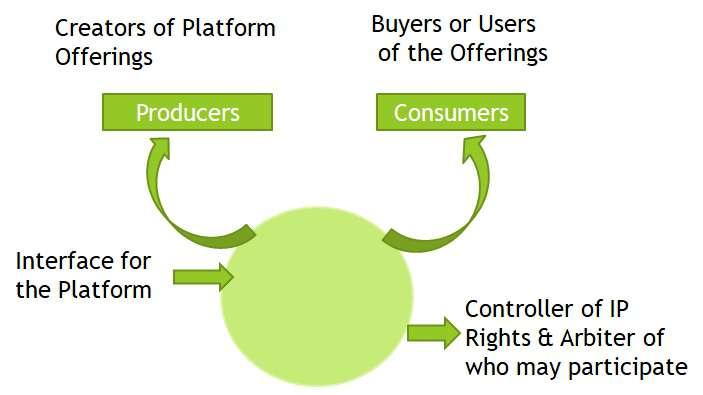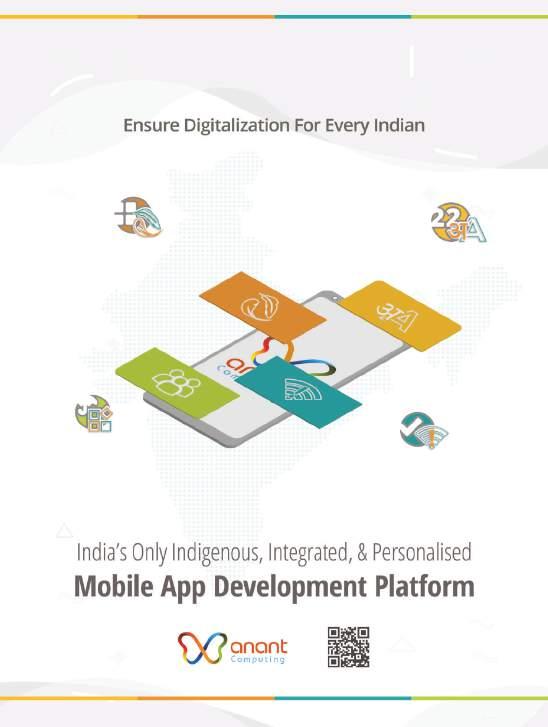
11 minute read
Hashim Babu, Sajid M, and Dhanesh OT
Hashim Babu, Sajid M, Leading Winstud Academy towards Excellence & Dhanesh OT
Hashim Babu Chairman
Advertisement
Successful business leaders never give up at the face of adversity. They are driven by the enthusiasm to introduce change with their dedicated endeavors. These leaders believe in working as a team. They focus not only on fulfilling the company’s objectives, but also individual goals of every employee. Such leaders are result focused and possess a compassionate and growth-oriented outlook.
The above mentioned qualities accurately describe the three torchbearers of Winstud Academy–Mr. Hashim Babu the Chairman; Mr. Sajid M, the Director of Administration; and Mr. Dhanesh O T, the Director of Extension and Development.
Mr. Hashim is known for his pleasing manners and wisdom. He is a resilient and creative leader, who maintains the cohesion and goodwill among the directors and leads the institution efficiently. Mr. Hashim is a brilliant coordinator and administrator of educational institutions who always keeps a keen eye on the quality in the system and management of organizations.
About Winstud Academy
Established in 2014, Winstud is a private limited company registered under Govt. of India for spreading quality education through courses which are not only meant to prepare the job-seekers but also to instill confidence and capabilities of
entrepreneurship in students. Hence, vocational courses designed by Winstud cuts an edge over the similar courses in the field of education. The curriculum plans of all courses conform to the
Mr. Sajid controls the operations of Winstud and maintains relations with the franchisee network. An energetic leader with prompt and appropriate reactions, he is the live wire in the institution. Mr. Sajid bears long years of experience in the field of financial administration in reputed institutions and as an organizer of business, he had many laurels on his collars.
latest requirements and competencies in the employment sector of the modern age. It offers courses in Management, Education, Fashion Designing, Interior Designing, Architecture and Engineering, Health and Beauty, IT, Accounting, and so on. These are implemented through 200+ centers enrolling more than 15000 candidates. It also offers the facility of online courses for people who cannot attend regular classes.
The Inception Saga
Under the leadership of Mr. Hashim, Mr. Sajid, and Mr. Dhanesh, the academy set foot in the business arena in the year 2014. They established the institution with a grand plan of extending and redefining the concept of technical and vocational education. All courses carry curriculum plans which conform to the latest requirements and competencies in the employment sector of the modern age.
The three of them believe that although the academy has completed half a decade offering its services, it is a very short period with regard to the life of an institution. They add, “As we look back, we are astonished to see the cross roads and blind lanes we left behind in our growth. At the start we had only a vague idea and concretization came with the implementation. As everybody knows, extension activity in education service sector is like selling a concept without finding immediate clients”.
Delivering Excellent Services Mr. Hashim, Mr. Sajid, and Mr. Dhanesh state that

Certifications of Winstud Courses by institutions of international repute lend a cutting edge to win a prosperous professional life “ “ Sajid M Director of Administration 31| February 2020

Dhanesh O T Director of Extension and Development
the company offers online and offline courses in accountancy, management, education, fashion designing, health care, and many more. Students successfully completing these courses get the opportunity to be recruited in renowned organizations in India and abroad.
They further say that the services the academy offers fall under categories such as management school, teacher training, communication and soft skills, online education, health care, Winstud Publications, Newtons’ Kid International pre- school, and so on. Exams are conducted online and the program to install a unique exam portal for all exams is on the anvil.
Under the astute leadership of the three dedicated front runners, the company offers a wide variety of dynamic courses which include, IDHFA(International Diploma In Hospital Front Office Administration), IDCAT (International diploma in Corporate Accounts Training),
32| February 2020 IDOA(The International Diploma in Office Administration), IDAAM (International Diploma in Airport and Airline Management), and many more.
Mr. Dhanesh is a major foundation of Winstud. Always on the wheels to widen the franchisee network, he is a man of hard work who aims for the moon with the firm belief to hit a star at least. Mr. Dhanesh has 14 years of experience in marketing management in British, German, and Indian MNCs and is a wizard in the field of marketing.
Winstud has also designed its dream project of establishing Newtons’ Kid for imparting preprimary education re-defining montessori principles on the basis of real Indian situation and developing it to the higher levels.
Achieving Numerous Laurels
The trio of Mr. Hashim, Mr. Sajid, and Mr. Dhanesh has led Winstud to accomplish many landmarks throughout the journey of excellence. The academy developed association with FICS, the UK based certification program for professional courses. This helped Winstud to enhance the value and acceptability of its courses and certificates.
This certification has increased the credibility of the company, while providing placements to students in reputed institutions of India and abroad. The trio asserts, “we were able to step up the quality of education and add brilliance on the basis of our association with FICS. Studying the Winstud courses culminates in securing certificates recognized internationally”. They are proud of gaining the accreditation of IAF, ELC, IATE, and IMS, which add glory to the company certificate courses.

Digitize or Face Demise
As I was growing up in India in the 70s and the 80s, one advertisement that always caught my attention was the “Kodak Moment”. Kodak was world’s largest photography and print media company, capturing over two thirds of the share of global market. They said that the job of a sales person in Kodak was a comfortable job, because the KODAK products sold themselves, there was very little sales marketing effort required to sell them. Around the turn of the century, Kodak developed the digital Camera. It was a great invention that did away with the need for films in camera; instead recording the image on a backup memory. However, the senior management at Kodak refused to let the new invention hit the market, for the fear of losing the film business, which constituted 60% of their top line and 90% of the film business in the US. At a time when digital technology was reshaping the whole world, the leadership at Kodak was in a denial mode. Sony and Canon saw their opportunity and adopted the digital imaging technology in a big way. Digital imaging swept through all segments of photography. Kodak shares started to decline. Even then kodak thought that their marketing effort will be able to reverse the trend. Nothing of that sort happened and Kodak went bankrupt within a decade of refusing to accept the advent of Digital photography.
Similar story repeated itself in Nokia. Nokia was the world's biggest and leading mobile phone manufacturer. Within a span of 4 years from 1995-1999, it had quadrupled its turnover from $1billion to $4 billion. By 2003 it was the world's leading mobile manufacturer. In 2007 Apple launched the iPhone. It changed the perception of a mobile phone from just a communication device to a device for multiple functions like music, photography, entertainment, information and communication. iPhone introduced another very interesting feature of iTunes. Anyone with ideas could add an App to the iTunes and hope to make money by its sale. Thousands of young minds thronged the iTunes platform with bright new ideas. While they uploaded the Apps to the iTunes store, millions could use these apps for a very small nominal sum of money. Invariably less than $10/-. Apple had created the first platform for producers and consumers of value to come together on the platform, exchange value, enrich themselves and in the process and also enrich the Apple company. It was win-win for all the stakeholders. Nokia failed to notice this new business model that worked on creating the network effect around the platform for value exchange. Nokia started fading away and by 2013 had become a spent force in the mobile market. Finally, it got acquired by Microsoft and Nokia brand name vanished from the mobile phone market.
The above two cases show a very important trend. Digital technology shall touch all businesses the way it had never touched in the past. Amazon, riding on their internet platform has captured the retail market and is giving tough competition to the established players like Walmart. Uber, riding on their ride sharing platform is already valued higher than GM motors; an auto company established nearly a century ago. Airbnb, without owning a single room is valued higher than Marriot, that runs a hotel chain of thousands of hotels across the world and a company like Netflix has sent the giants like the “Blockbuster” to the annals of history in USA. So, what is common between Amazon, Uber, Airbnb and Netflix. All these companies have heavily adopted the digital technology and taken quick advantage of giant leaps taken by the digital industry in
About the Author
faster communication (In excess of 100Mbps), huge data storage and retrieval and advanced techniques in data analytics and Artificial intelligence.
The time for adopting digital technology for just an advantage in the market place is gone. Now it is the question of survival. Either adopt the digital technology or some tech entrepreneur with a new platform business shall gobble up your business even before you realize what is happening around. Digital technology in general and Digital platforms in particular are re-writing the rules of the business strategy.
Wg. Cdr. Pradeep Valsangkar

Wg. Cdr. Pradeep Valsangkar is a postgraduate engineer from the IAF. He completed his M.tech in Computer Science from IIT Powai and MBA from FMS Delhi. He is also a graduate of the Defence Services Staff College of India. After leaving service, he has worked in various capacities across different IT services companies. He has been working as a senior consultant of the world bank for the last 15 years, a visiting faculty at the Institute of Management Technology and runs his consulting rm Global Consulting Solutions.
In the industrial era businesses, value was created by people, processes and technology. Such a value in the form of goods or services was taken to the market where it got sold for a premium over the cost of manufacturing or service delivery. Since the technology and processes created the value, all the companies kept these secrets very close to their heart.
But this model of value creation changed with the advent of the Digital platform business model. Such a digital technology platforms brought four players together on a single platform. These are as shown in the diagram below:

In the above diagram the platform owner (Amazon, Uber, Netflix, Airbnb etc) is neither the producer of core value that gets consumed nor the consumer of that value. Instead it just facilitates bringing the producer and the consumer together on a platform. It provides several facilities, driven by modern digital technology of data analytics and AI. This facilitates an easy value exchange between the producer and the consumer there by creating a network effect. This network effect gets hundreds of thousands of producers to throng the platform market because it promises quick sale and higher volumes. It also attracts millions of consumers and clients, since it is now so easy for them to look for the exact producer available at the right price for them to buy and consume that value. They can now compare and contrast hundreds of producers of a good or service, compare their prices, see what others are saying about them and finally decide on the exact purchase. This network effect multiplies as the time goes by and consumers become more and more comfortable with the platform and begin to choose the platform instead of brick and mortar businesses. Over a period of time the brick and mortar businesses either adopt the digital way of doing business or face the prospect of complete extinction.
In whatever business you may be in, it is time for you to apply the digital lens to your business. Look at the speedily changing landscape in your industry. Look at what new technology trends and advances are happening in the digital world and how these are getting applied to products and services in your industry. Sit with your strategy team and create the “Digital Business Strategy” rather than just the “Business strategy” for your company. Unless you adopt the digital technology for your business, you may be the next Kodak in the making (or may be dying).













